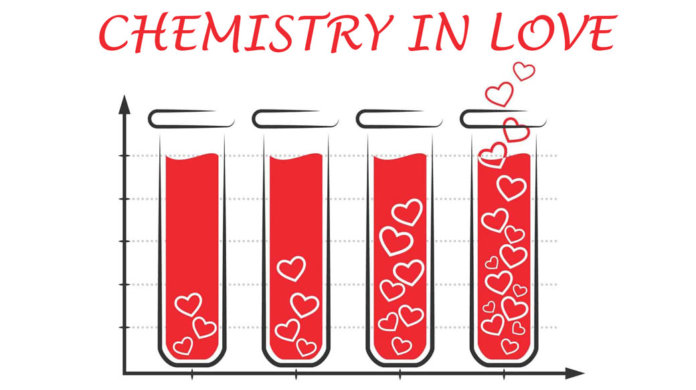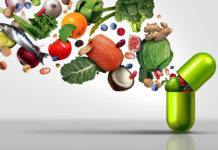Love is an amazing feeling. It is a special state of mind that can make you feel, both, incredibly happy and incredibly sad. The intertwined thoughts and emotions can change your behavior and your life when you are in love. There is chemistry in love, and many hormones involved.

There are chemicals in your brain that influence all phases of love, such as attraction, lust, and attachment. These are hormones and neurotransmitters with important roles in many bodily functions.
In this article, we explain the role of these chemicals in the process of falling in love as well as all their positive and negative effects.
The Chemistry in Love – Hormones of Attraction, Lust and Attachment
Chemistry in Love – Attraction
The attraction phase of love is always parallel with the phase of lust. It is that obsessive period when you fantasize about the person you like. Many famous symptoms of love, such as stomach “butterflies”, sweaty palms, insomnia, and lack of appetite are prominent during the attraction phase.
These symptoms do not appear just because you like somebody. They are a consequence of chemical reactions caused by changes in the levels of three specific hormones: dopamine, norepinephrine, and serotonin.

Dopamine is a hormone and a neurotransmitter produced in the hypothalamus region of the brain. Its release is associated with reward-motivated behavior. This means that your dopamine levels rise when you expect a desirable outcome.
For example, fantasizing about the person you are attracted to, causes dopamine to rise. Dopamine tells your brain to keep doing whatever feels rewarding and it can make a person you like to seem more special than it is.
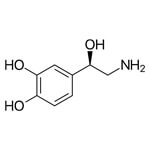
Norepinephrine is a stress-related hormone. It has an important role in the body’s fight-or-flight response.
The increase in levels of this hormone in your brain causes love symptoms such as increased heart rate, excitement, anxiety, and loss of appetite.

Low levels of serotonin are the most probable cause of infatuation. This hormone can also be blamed for the obsessive thoughts about the person we like, high hopes, fear of rejection, etc.
Chemistry in Love – Lust
Lust is connected with the natural need of all living things to reproduce. This phase of love is the most physical one. It is characterized by a strong desire to engage in sexual contact with another person.
Physical appeal is very important for lust. This is nature’s tool for genetic selection. Seduction plays a big part too. It promotes sexual receptivity.
Primary sex hormones are responsible for lust in both women and men. In the case of women, this is estrogen. In men, it’s testosterone.
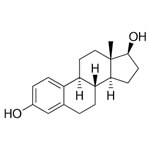
High levels of estrogen and sexual desire do not have a certain and clear connection. However, this hormone is always increased during the ovulation period, when sexual arousal in women is high. On the other hand, estrogen levels fall after menopause and so does the women’s sex drive.
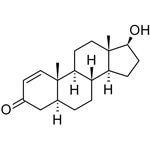
Higher testosterone levels in men are directly responsible for increased sexual desire. This is a driving factor behind lust but it has very little to do with romantic love.
Chemistry in Love – Attachment
At first glance, attachment is the least glamorous phase of love. Sexual desire and romance are present in this phase too, but they are not crucial.
Attachment lasts longest of all love phases, it is the most important trait of “true love”. Commitment, friendship, sense of security, trust, and the desire to share your life with someone are major characteristics of attachment.
There are also hormones whose presence is valuable for the success of a long-term relationship. These are oxytocin and vasopressin, the attachment hormones.
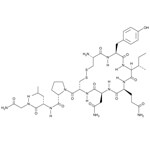
Oxytocin is also called “the hormone of love” because of its important role in empathy and relationship-building, especially in women. Levels of this hormone rise during hugging, kissing, breastfeeding, and orgasms.
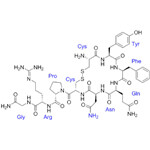
Studies suggest that the higher presence of vasopressin promotes monogamy in certain animal species. In humans, vasopressin together with oxytocin influences social behavior and promotes attachment.
The Final Word
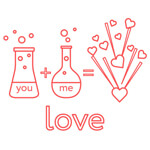
The chemistry in love is well known. However, there is no single love formula that can help everyone to stay happily in love. It is up to you to make a perfect mix for long-lasting love. The right doses of attraction, sexual arousal, and commitment should do the trick.

